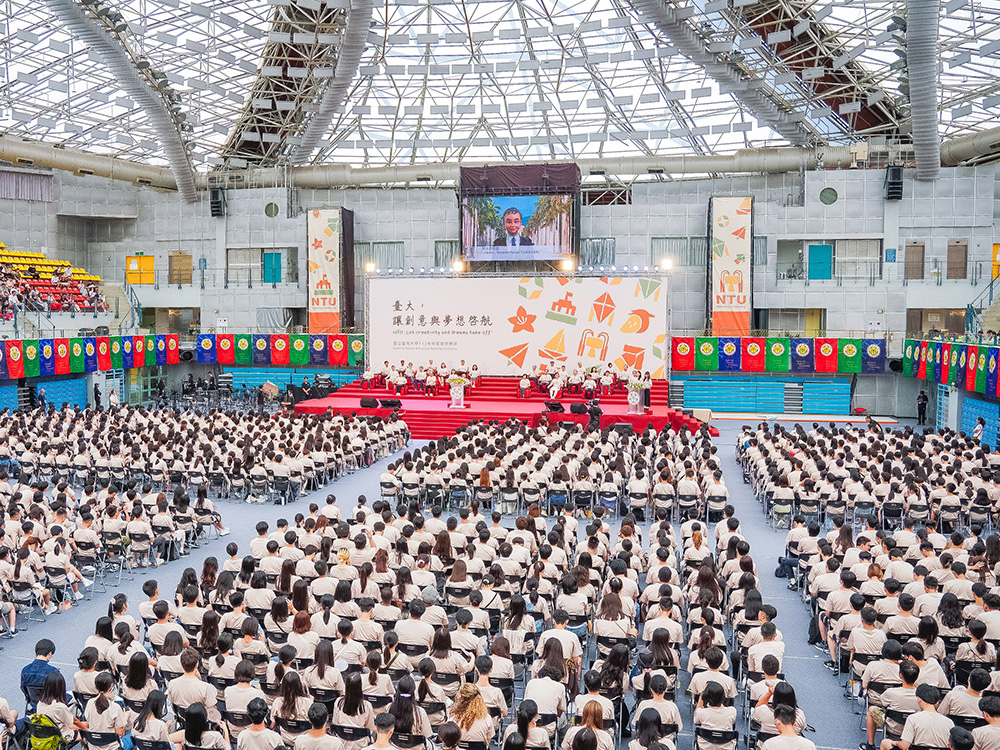
NTU Opening Ceremony: “Where Creativity and Dreams Take Flight”
瀏覽器版本過舊,或未開啟 javascript
請更新瀏覽器或啟用 javascript
Spotlights
Updated Pandemic Measures and the Distribution of Rapid Test Kits.
In accordance with the latest announcements of Central Epidemic Command Center (CECC) and Ministry of Education (MOE), the university updated the pandemic prevention measures as follows, effective from today.
A. Measures for confirmed cases and contacts
Residential students who are close contacts or taking self-initiated responsive measures, please go home if possible. For international students or those who have difficulty returning home, the university will consider arranging temporary accommodation. If the other roommates have returned home, the residential students who are close contacts or taking self-initiated responsive measures can stay in the dormitory room, using a private bathroom only.
B. Measures of the distribution of free rapid test kits
The original regulation stated that faculty members who are in the period of self-health management are not allowed to enter the dormitory or participate in courses. According to the updated guidelines issued by the MOE on May 3, the above regulation has been adjusted as follows. Faculty, staff, and students who are in the period of self-health management should abide by the Ministry of Health and Welfare's announcement of "Self-Health Management Compliance Items and Notice." Please take personal protection measures while maintaining regular daily activities, including going to class, entering an office, research room, or dormitory.
The university once again reminds all the faculty, staff, and students who are in the period of self-health management that if you do not have any symptoms, you can maintain daily activities. However, please keep your medical mask on and maintain social distancing. Avoid having close contact with people or going to places where social distancing is not possible. Do not engage in close or group activities with others (such as group dining, gatherings, or public gatherings). Do not go to hospitals to accompany the patient. Non-urgent medical care or examinations should be postponed.
If you have suspected symptoms such as fever, respiratory symptoms, diarrhea, or abnormal smell and taste, please wear a medical mask, contact the local health authorities, or dial 1922 to seek medical treatment without taking public transportation. When seeking medical treatment, please report the contact history, travel history, residence history, occupational exposure, and whether other people around you have similar symptoms. Please wear a medical mask after returning home and avoid going out. Individuals tested negative when the isolation or quarantine period expires should take self-health management until the end of the following period.

NTU Opening Ceremony: “Where Creativity and Dreams Take Flight”
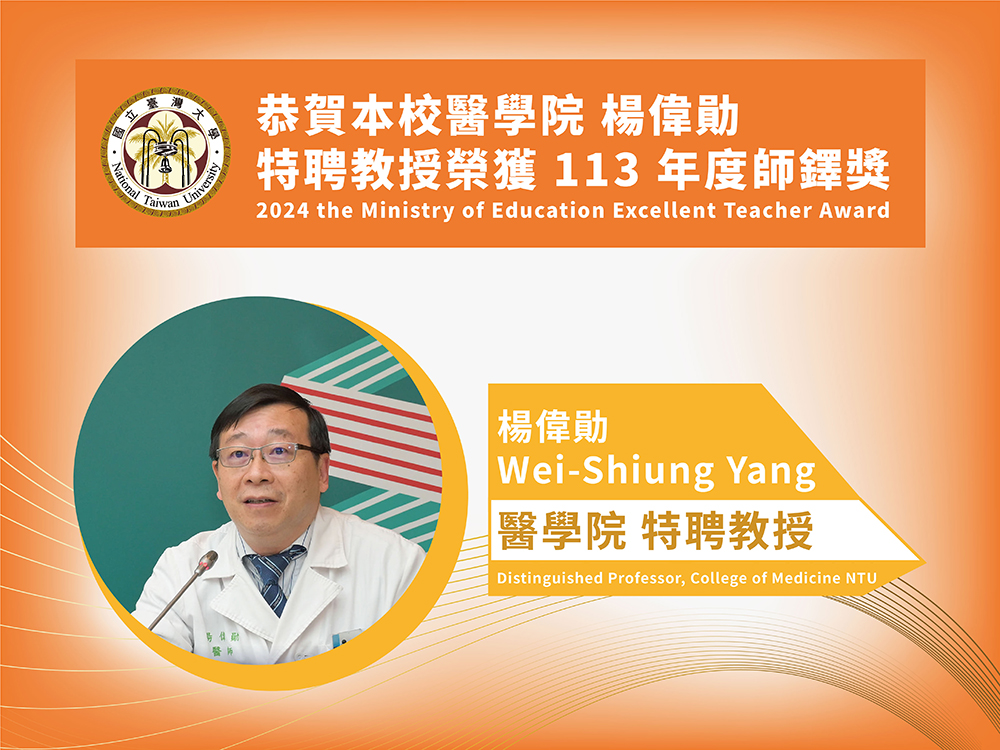
Prof. Wei-Shiung Yang wins MOE National Excellent Teacher Award
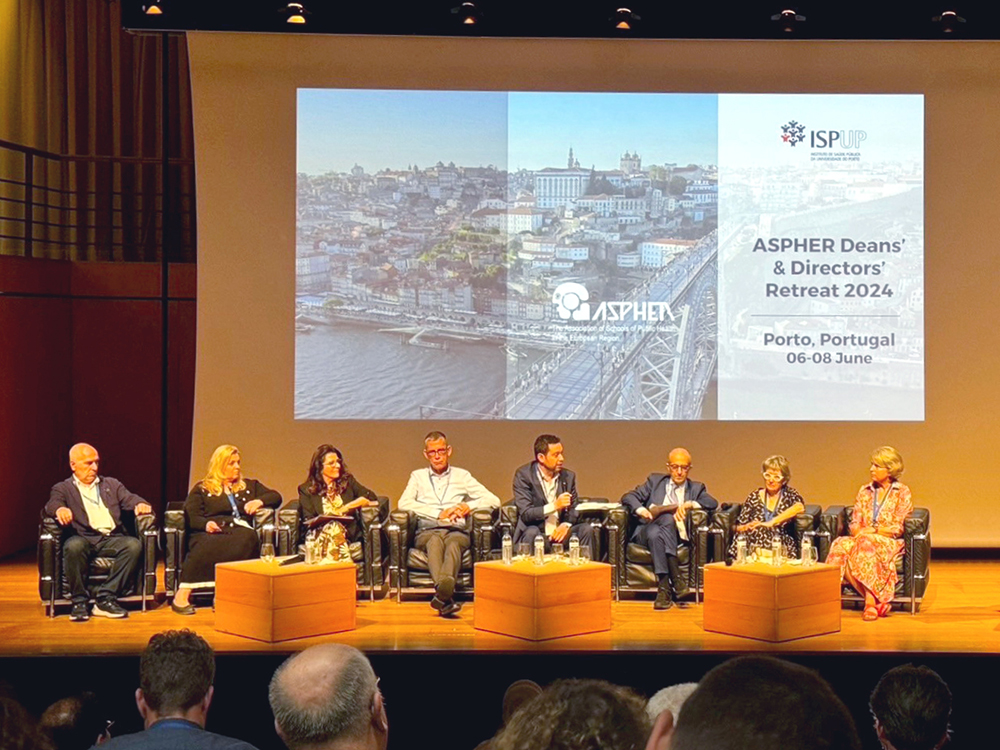
NTU College of Public Health's Global Health Program Joins the Association of Schools of Public Health in the European Region
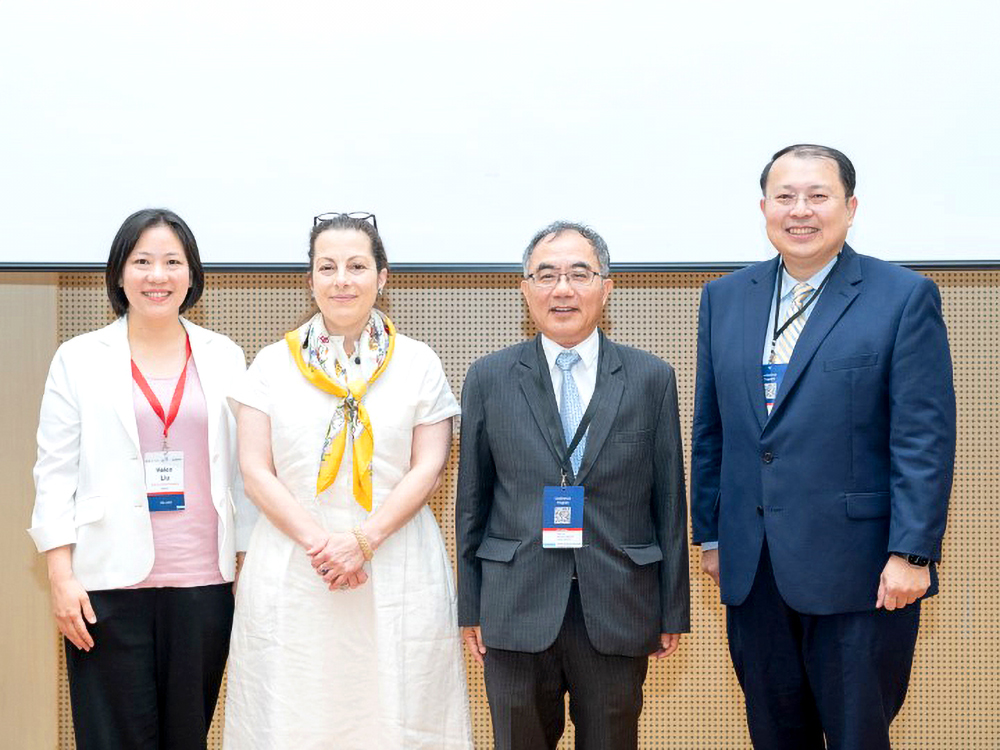
NTU hosts a successful dg.o 2024
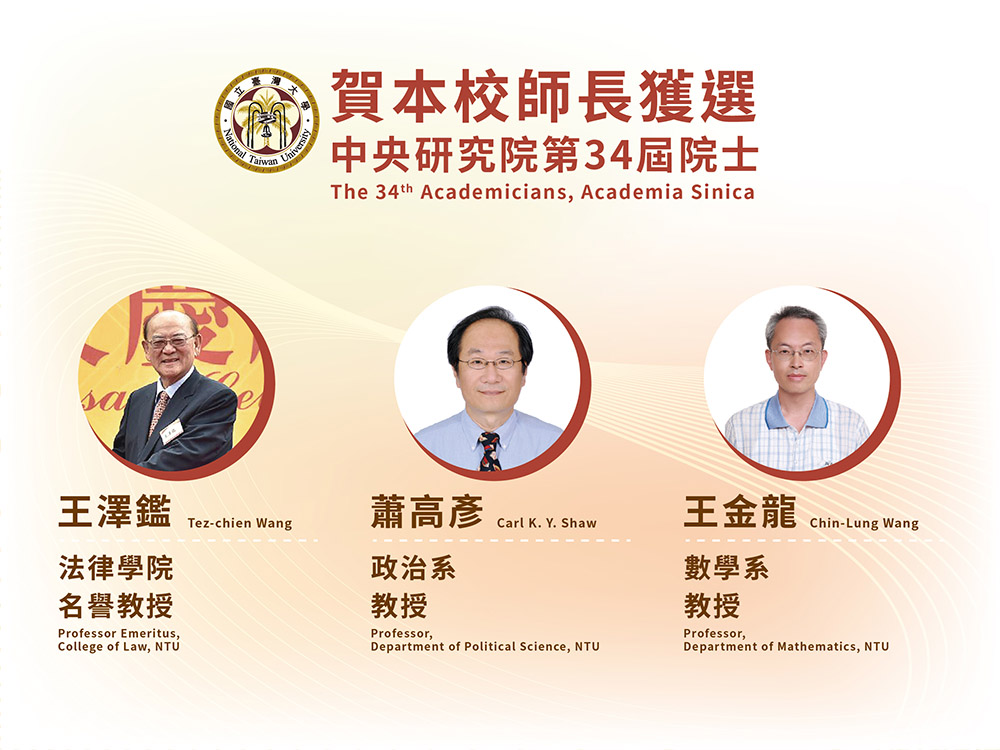
Congratulations to NTU faculty members elected as 34th AS academicians
Current Spotlights